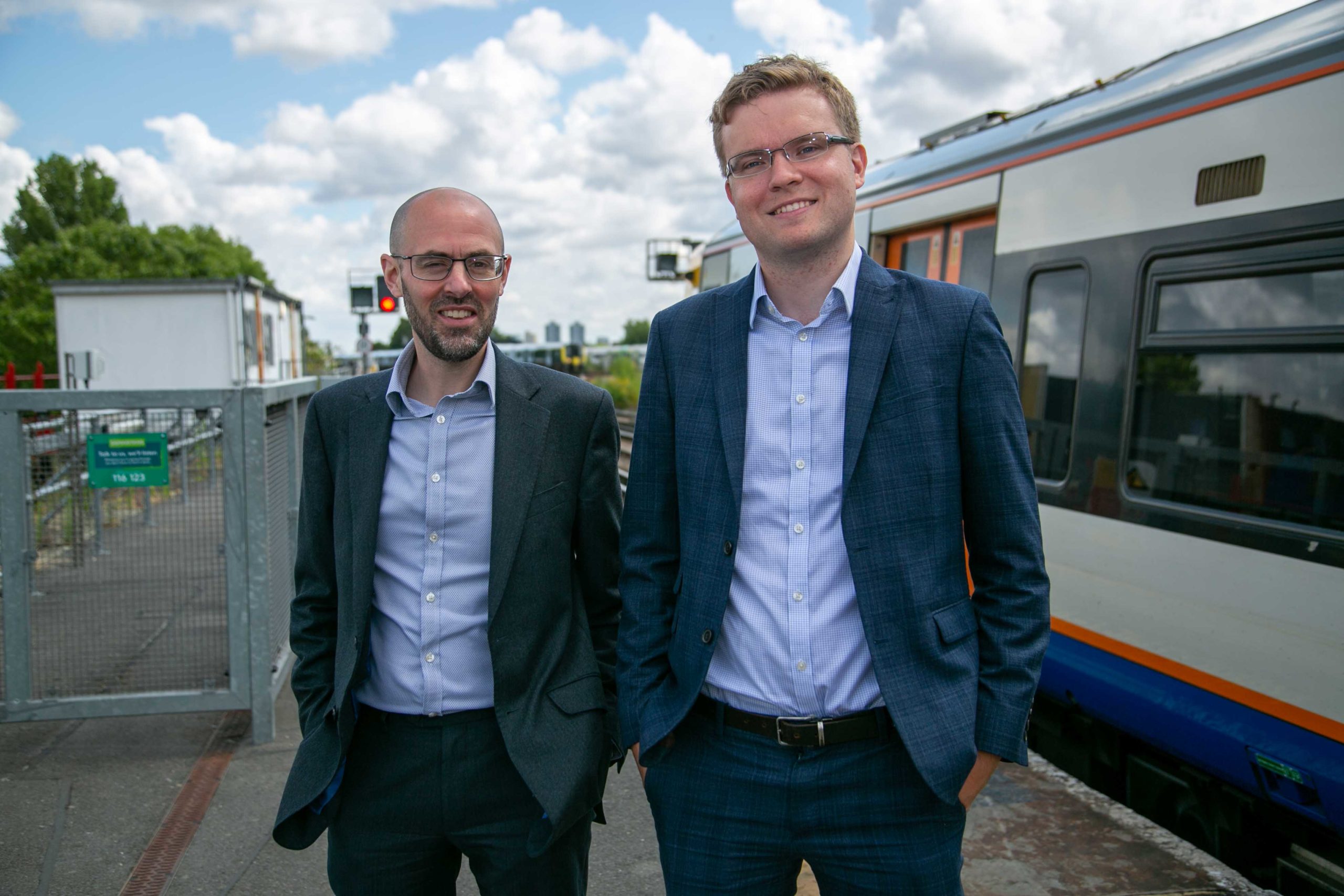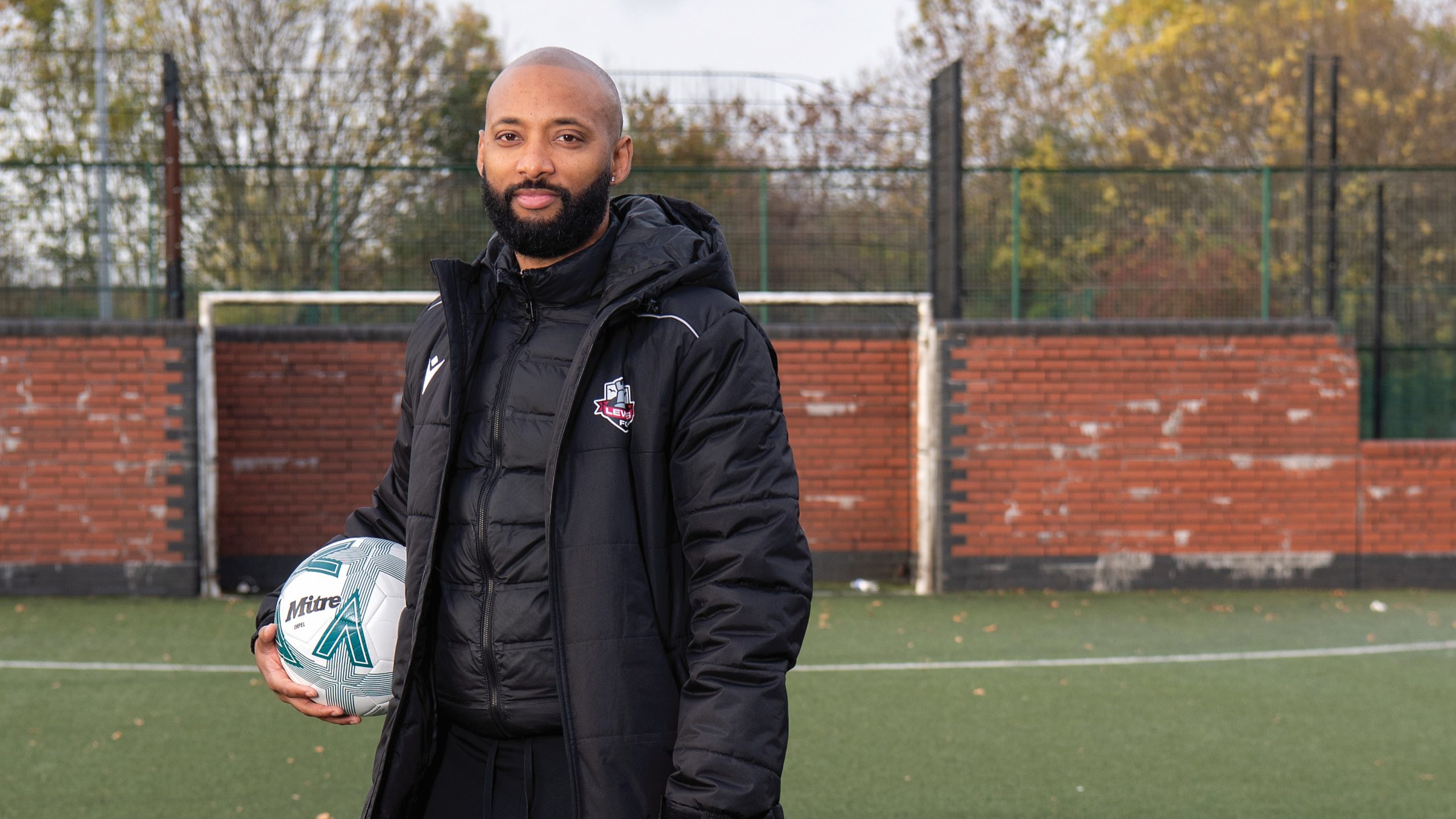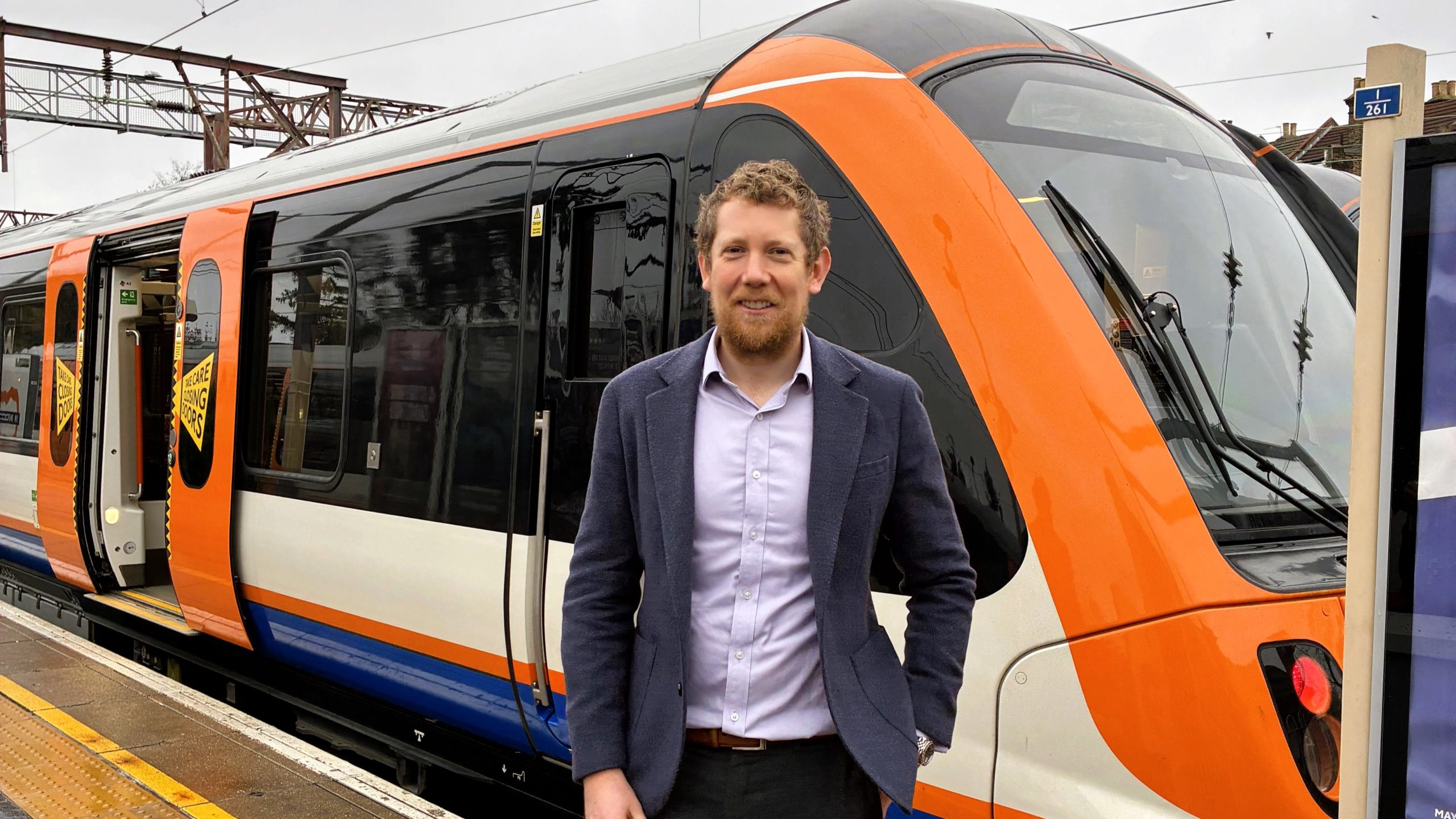- Home
- /
- Arriva Rail London news
- /
- Learning at Work Week:...
Learning at Work Week: A journey of learning for two operations directors
16 May 2025

Learning at Work Week aims to build learning cultures at work and spotlight the importance of continual learning and development. Even at director level, continuous learning is crucial for personal and professional growth.
In 2023, Arriva Rail London (ARL’s) operations director, Matt Pocock, and Network Rail’s (NR) Wessex route operations director, Gunnar Lindahl, took part in an innovative job swap, with the aim of learning how to bring track and train operations together successfully. We asked Matt and Gunnar to reflect on their experience and share their learnings.
How has your experience at ARL differed from your role at NR?
Gunnar: In many ways, being an operations director at NR and ARL looks very similar on paper. There are of course lots of similarities, but the stark difference in dynamic between working as part of a route leadership team – which forms part of a business with 42,000 employees – versus sitting on the executive leadership team of a train operating company (TOC) with just over 1,500 people, cannot be underestimated. The dynamic is just completely different!
What new insights did you gain during your secondment?
Matt: I ended up doing three different roles during my time at Network Rail. After starting the secondment as operations director on the Wessex route, I soon stepped up to lead the route as interim route director and later worked in the system operator team as network performance director.
As interim route director, I led the team through a really challenging period of extreme weather that caused a lot of infrastructure damage – landslips and the like. Partnership with South Western Railway (SWR) was incredible as we were forced to adapt train plans to allow for repairs and account for the infrastructure restrictions. This gave me first-hand experience of the importance of adapting our railway for climate resilience, as well as the daily challenges of operating and maintaining a Victorian infrastructure.
Can you share a specific challenge you faced and how you overcame it?
Gunnar: One of the challenges of being an operations director at a TOC is that a significant part of your safety accountability lies in the driving discipline, and I don’t have train driver experience. Whilst having that experience isn’t necessary, it was critical for me to immerse myself in that world, to fully understand how we were operating and how my team were managing operational safety.
I did this by getting out on the network, riding in the cab with drivers as much as possible and asking numerous questions. I also shadowed local safety meetings, which helped me to contextualise the environment and challenges we face in making the railway safer. As an ex-signaller, it was particularly helpful for me to do this as it allowed me to see ‘the other side’ of the operating coin.
Is there one particular learning point that sticks out for you?
Matt: Leading NR’s tributes to the 35th anniversary of the Clapham Junction rail disaster – a particularly poignant milestone, given the 35 lives that were tragically lost in this accident. This was a hugely moving experience and one which brought together colleagues from across the railway industry and more widely.
Locally, the NR delivery unit and the SWR driver teams are still very close to the accident and its learning points, continuing efforts to preserve the memories. However, awareness in the wider industry has diminished over the years. This anniversary served as an opportunity to reconnect the wider industry with the learning points from this accident. It prompted me to read up on the accident and recommendations from the investigation – educating myself into something that I knew only a little bit about. It was a very tangible reminder to me of the safety critical nature of what we do as an industry and how safety really must remain front and centre of everything we do.
Was there a significant project you worked on during your secondment?
Gunnar: The London Overground underwent significant changes during my secondment, in the form of the line naming project. The ambitious initiative, which saw each line of route given its own name and colour, was incredibly rewarding to be a part of. However, it also presented a huge learning curve, as it required extensive coordination and communication to ensure a smooth implementation.
The line names aim to enhance passenger experience by making navigation easier and more intuitive. For this to work, we needed to make sure that we supported this from an operational perspective. We collaborated closely with departments across the business, using each area’s expertise to ensure the project was a success.
What has been the most rewarding aspect of this job swap for you?
Matt: I have used the job swap to advance causes I am passionate about. Firstly, returning to Network Rail allowed me to establish the Rail Industry Planning Awards, recognising the vital role of planners in solving industry challenges. Hosting the first awards with 230 colleagues was a proud moment.
Secondly, and even more importantly, my time at Wessex route saw me lead the iconic London Waterloo station and the amazing NR team there. People who know me well understand how important the subject of accessibility and inclusion is to me. My son is autistic, with communication difficulties and sensory processing issues amongst the challenges that he needs to overcome to engage in everyday activities that most of us would take for granted.
I established a partnership with the National Autistic Society (NAS) and the station team worked to achieve the Autism Friendly Award. This involved us meeting specific standards and following a framework. With this success under our belt at a large, complex station, momentum is now building for a wider rollout at all NR-managed stations.
What advice would you give to colleagues considering a similar job swap?
Matt: Have a go. There is nothing quite like walking in someone else’s shoes to really appreciate their perspective and the challenges that they face.



